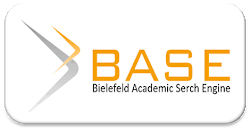Narasi Konflik dan Fragmentasi Pengetahuan Masa Lalu dalam Pendidikan: Studi Kasus di Kabupaten Pidie, Aceh
DOI:
https://doi.org/10.22373/jsai.v5i3.7489Keywords:
Konflik Aceh, Narasi Konflik, Pendidikan Pasca-Konflik, Pengetahuan Guru, Pengetahuan Siswa, PidieAbstract
The way past conflict narratives are understood and taught plays a crucial role in reconciliation and peacebuilding efforts in post-conflict regions such as Aceh, Indonesia. However, the effectiveness of this process depends on how complex and sensitive historical knowledge is transmitted and internalized by key educational actors. This study aims to examine the depth, sources, and characteristics of historical knowledge about the Aceh conflict held by high school teachers and students in Pidie District. Employing a qualitative descriptive method, data were collected through in-depth interviews, passive classroom observation, and document analysis at MAN 1 Pidie. The findings reveal a significant knowledge gap. Teachers’ understanding of the Aceh conflict tends to be fragmented, heavily reliant on personal experiences, and constrained by perceptions of limited formal teaching resources. As a result, students acquire minimal formal knowledge from school, often relying on informal sources—such as family narratives and digital media—whose validity is questionable. This knowledge gap hinders the development of students’ critical understanding of the past and limits the potential of education as a transformative vehicle for peace. The study underscores the urgent need for systemic interventions, including curriculum reform, foundational capacity-building for teachers (content mastery and critical pedagogy), and the enhancement of students’ critical literacy in navigating contested historical narratives.
Abstrak
Bagaimana narasi konflik masa lalu dipahami dan diajarkan memainkan peran krusial dalam proses rekonsiliasi dan pembangunan perdamaian di wilayah pasca-konflik seperti Aceh, Indonesia. Namun, efektivitasnya bergantung pada bagaimana pengetahuan tentang masa lalu yang kompleks dan sensitif ditransmisikan dan dipahami oleh aktor kunci dalam sistem pendidikan. Penelitian ini bertujuan menganalisis kedalaman, sumber, dan karakteristik pengetahuan guru dan siswa sekolah menengah atas di Kabupaten Pidie mengenai narasi konflik Aceh. Menggunakan metode kualitatif deskriptif, data dikumpulkan melalui wawancara mendalam, observasi kelas partisipan pasif, dan analisis dokumen di MAN 1 Pidie, melibatkan guru mata pelajaran relevan (Sejarah, Sosiologi, PKN) dan siswa jurusan IPS. Hasil penelitian menunjukkan adanya kesenjangan pengetahuan yang signifikan. Pengetahuan guru mengenai narasi konflik Aceh cenderung fragmentaris, sangat bergantung pada pengalaman personal, dan terkendala persepsi keterbatasan sumber ajar formal. Akibatnya, pengetahuan siswa yang diperoleh dari sekolah sangat minimal, mendorong mereka bergantung pada sumber informasi informal (narasi keluarga, media digital) yang validitasnya diragukan. Kesenjangan ini menghambat pembentukan pemahaman kritis mengenai masa lalu (critical understanding of the past) dan efektivitas pendidikan untuk perdamaian. Studi ini menegaskan perlunya intervensi sistemik yang mencakup reformasi kurikulum, penguatan kapasitas fundamental guru (penguasaan materi & pedagogi kritis), serta pengembangan literasi kritis siswa dalam menavigasi narasi masa lalu.
References
Alerby, Eva. 2020. “The Significance of Silence in Pedagogical Settings.” Pp. 43–50 in Silence within and beyond Pedagogical Settings. Cham: Springer International Publishing.
Amin, Khairul. 2018. “Pengaruh Konflik Terhadap Pembangunan Pendidikan Di Aceh.” Nazhruna: Jurnal Pendidikan Islam 1(2):159–76. doi: 10.31538/nzh.v1i2.45.
Aspinall, Edward. 2009. “Combatants to Contractors: The Political Economy of Peace in Aceh.” Indonesia (87):1–34.
Averink, Marijke. 2013. “Education for Sustainable Peace: The Role of Education in the Aftermath of Ethnic Conflict.” University of Ultrecht.
B. Miles, Matthew, A. Michale Huberman, and Johnny Saldana. 2014. Qualitative Data Analysis Data: A Methods Sourcebook. Edition 3. United Kingdom: Sage.
Bajaj, Monisha, and Belinda Chiu. 2009. “Education for Sustainable Development as Peace Education.” Peace & Change 34(4):441–55. doi: 10.1111/j.1468-0130.2009.00593.x.
Banks, James A. 2017. “Citizenship Education and Global Migration: Implications for Theory, Research, and Teaching.” American Educational Research Association (AERA) 528.
Bar-tal, Daniel. 2002. “The Elusive Nature of Peace Education.” Pp. 27–36 in Peace education: The concept, principles, and practices around the world, edited by G. Salomon and B. Nevo.
Barton, Keith C., and Linda S. Levstik. 2004. Teaching History for the Common Good. Routledge.
Braun, Virginia, and Victoria Clarke. 2023. “Toward Good Practice in Thematic Analysis: Avoiding Common Problems and Be(Com)Ing a Knowing Researcher.” International Journal of Transgender Health 24(1):1–6. doi: 10.1080/26895269.2022.2129597.
Cole, E. A. 2007. “Transitional Justice and the Reform of History Education.” International Journal of Transitional Justice 1(1):115–37. doi: 10.1093/ijtj/ijm003.
Cole, Elizabeth A, ed. 2007. Teaching the Violent Past: History Education and Reconciliation. Lanham: Rowman & Littlefield.
Cresswell, John W. 2015. “Penelitian Kualitatif Dan Desain Riset: Memilih Diantara Lima Pendekatan.” Yogyakarta: Pustaka Pelajar.
Davies, Lynn. 2010. “The Different Faces of Education in Conflict.” Development 53(4):491–97. doi: 10.1057/dev.2010.69.
Gómez‐Carrasco, Cosme J., Jairo Rodríguez‐Medina, Ramón López‐Facal, and José Monteagudo‐Fernández. 2022. “A Review of Literature on History Education: An Analysis of the Conceptual, Intellectual and Social Structure of a Knowledge Domain (2000–2019).” European Journal of Education 57(3):497–511. doi: 10.1111/ejed.12508.
Horner, Lindsey, Laila Kadiwal, Yusuf Sayed, Angeline Barrett, Naureen Durrani, and Mario Novelli. 2015. “Research Consortium on Education and Peacebuilding - Literature Review: The Integration of Education and Peacebuilding.” P. 39 in Research Consortium on Education and Peacebuilding -.
Hossain, Naomi, and Sam Hickey. 2019. “The Problem of Education Quality in Developing Countries.” Pp. 1–21 in The Politics of Education in Developing Countries. Oxford University PressOxford.
Ibda, Hamidulloh, Aji Sofanudin, Moh. Syafi’, Mumtazul Fikri, and Marzuki Marzuki. 2023. “Network Of Islamic Education Ideology in Aceh Islamic Boarding Schools: A Systematic Literature Review.” At-Turats 17(1):68–90. doi: 10.24260/at-turats.v17i1.2801.
Jumaidi, Agus, Mustanir Mustanir, T. Rusli Yusuf, and Sanusi Sanusi. 2024. “Political Study Analyses of Education Policy to Improve Education Quality.” Emerging Science Journal 8(4):1420–39. doi: 10.28991/ESJ-2024-08-04-011.
Lozano, Monica, Mario Mendoza Toraya, Daniela Montaña, and Rodrigo Parra Sandoval. 2023. “Participatory Research, Biographical Narratives and Peacebuilding: An Experience with Teachers in Tolima, Colombia.” Teaching and Teacher Education 125:104054. doi: 10.1016/j.tate.2023.104054.
Miller, Michelle Ann. 2008a. Rebellion and Reform in Indonesia: Jakarta’s Security and Autonomy Policies in Aceh.
Miller, Michelle Ann. 2008b. “The Conflict in Aceh: Context, Precursors and Catalysts | Conciliation Resources.” in Accord: Aceh-Indonesia.
Muwaffaq, Thafhan. 2018. “Introspeksi Masa Lalu Terfragmentasi Dan Narasi Bermoda Percakapan Dalam Yang Sudah Hilang Oleh Pramoedya Ananta Toer.” JURNAL Al-AZHAR INDONESIA SERI HUMANIORA 4(3):171. doi: 10.36722/sh.v4i3.275.
Neuman, W. Lawrence. 2014. Social Research Methods: Qualitative and Quantitative Approaches. United States of America: Pearson.
Putra, Eka Vidya. 2018. “Money Politics Dalam Penyelengaran Pemilihan Umum Di Kota Pariaman.” SOCIUS 4(1):1. doi: 10.24036/scs.v4i1.19.
Reid, Anthony. 2014. The Blood of the People. NUS Press Pte Ltd.
Römhild, Ricardo. 2024. “THE SOUND OF CURRICULAR SILENCE: A CRITICAL REVIEW OF GERMANY’S FOREIGN LANGUAGE CURRICULUM.” Policy and Practice 2024-Autum(39):101–16.
Sahlan, Muhammad, Suci Fajarni, Siti Ikramatoun, Ade Ikhsan Kamil, and Iromi Ilham. 2019. “The Roles of Ulama in the Process of Post-Conflict Reconciliation in Aceh.” Society 7(2):251–67. doi: 10.33019/society.v7i2.106.
Sayed, Yusuf, and Mario Novelli. 2015. “The Crucial Role of Teachers in Peacebuilding.” Global Partnership for Education. Retrieved November 19, 2023 (https://www.globalpartnership.org/blog/crucial-role-teachers-peacebuilding).
Smith, Alan, and Tony Vaux. 2003. Education, Conflict and International Development. UK.
Srimulyani, Eka. 2013. “Islamic Schooling in Aceh: Change, Reform, and Local Context.” Studia Islamika 20(3):467–87. doi: 10.15408/sdi.v20i3.513.
Suadi, Saifuddin, and Fadli. 2018. “Incorporating Peace Education into Aqidah Akhlak Subject in East Aceh.” Emerald Reach Proceedings Series 1:467–72. doi: 10.1108/978-1-78756-793-1-00013/FULL/EPUB.
Tarozzi, Massimiliano, and Carlos Alberto Torres. 2016. Global Citizenship Education and the Crises of Multiculturalism. Bloomsbury Publishing Plc.
Trijono, Lambang. 2007. Pembangunan Sebagai Perdamaian: Rekonstruksi Indonesia Pasca-Konflik. Jakarta: Yayasan Obor.
Trijono, Lambang. 2009. “Pembangunan Perdamaian Pasca-Konflik Di Indonesia: Kaitan Perdamaian, Pembangunan Dan Demokrasi Dalam Pengembangan Kelembagaan Pasca-Konflik.” Jurnal Ilmu Sosial Dan Ilmu Politik 13(1):48–70.
Usman, Abdul Rani. 2003. Sejarah Peradaban Aceh: Suatu Analisis Interaksionis, Integrasi Dan Konflik. Jakarta: Yayasan Obor Indonesia.
Wagoner, Brady, and Ignacio Brescó. 2016. “Conflict and Memory: The Past in the Present.” Peace and Conflict: Journal of Peace Psychology 22(1):3–4. doi: 10.1037/pac0000147.
Zainal, Suadi. 2016. Post-Conflict Peace Education to Build Sustainable Positive Peace in Aceh. Vol. 6.
Zainal, Suadi, Saifuddin Yunus, Fadli Jalil, and Aizat Khairi. 2021. “The Policy of Local Government to Implement Peace Education at Secondary School Post Armed Conflict in Aceh Indonesia.” Journal of Social Studies Education Research 12(2):377–409.
Zainal, Suadi, Saifuddun Yunus, and Fadli. 2019. PENDIDIKAN PERDAMAIAN: Model Pembelajaran, Tantangan Dan Solusinya. Banda Aceh: Bandar Publishing.
Downloads
Published
How to Cite
Issue
Section
License
Copyright (c) 2024 Siti Ikramatoun, Fadlan Barakah

This work is licensed under a Creative Commons Attribution-NonCommercial-ShareAlike 4.0 International License.
- Authors retain copyright and grant the journal right of first publication with the work simultaneously licensed under an Attribution-NonCommercial-ShareAlike 4.0 International (CC BY-NC-SA 4.0) that allows others to share the work with an acknowledgment of the work's authorship and initial publication in this journal.
- Authors are able to enter into separate, additional contractual arrangements for the non-exclusive distribution of the journal's published version of the work (e.g., post it to an institutional repository or publish it in a book), with an acknowledgment of its initial publication in this journal.
- Authors are permitted and encouraged to post their work online (e.g., in institutional repositories or on their website) prior to and during the submission process, as it can lead to productive exchanges, as well as earlier and greater citation of published work.













